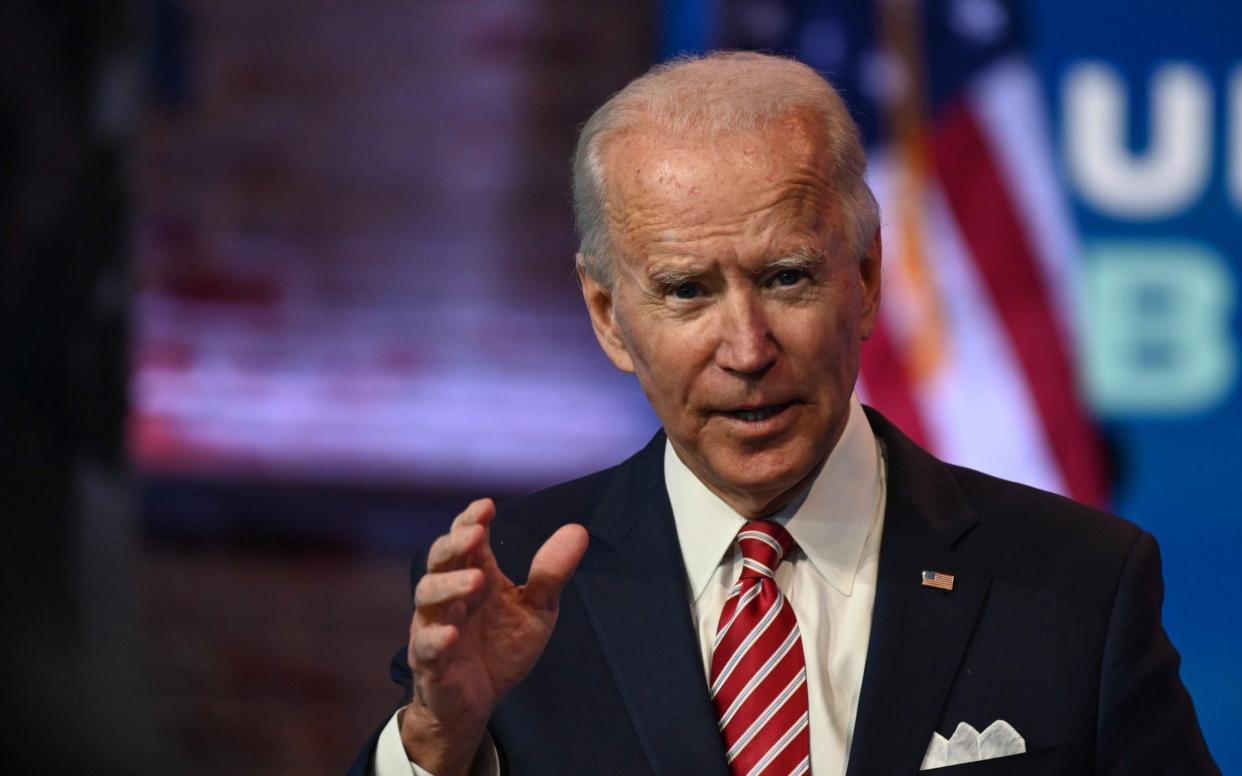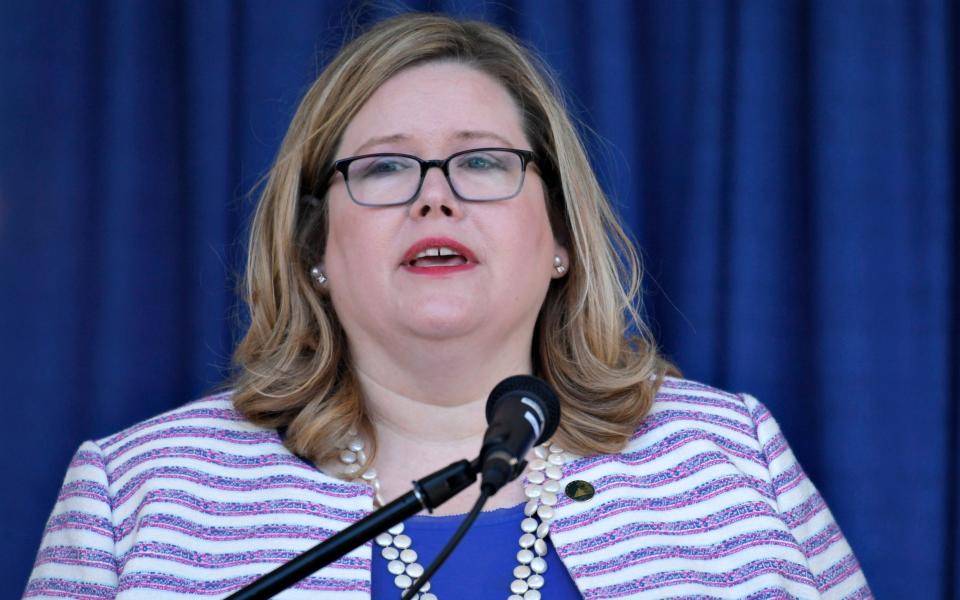Joe Biden sends out plea to supporters to help pay for transition

- Oops!Something went wrong.Please try again later.
Having already raised $365 million to win the White House, Joe Biden has turned to crowdfunding to help pay for his transition team as he prepares an administration to take over the reins of government in January.
The president-elect, who had already put aside an estimated $10 million for the transition, has been forced to put out the begging bowl because of the Trump administration's refusal to follow convention and release cash, allowing the handover to take place smoothly under a process known as "ascertainment".
With Donald Trump refusing to accept he lost the election, the General Services Administration, a normally obscure arm of government, has refused to co-operate with the incoming Biden team.
The stance by Trump-appointed administrator Emily Murphy has meant that Mr Biden has been denied office space, briefings and an estimated $8 million (£6 million) of federal money.
This has left the Biden team having to pay for salaries and expenses for the transition itself.
Here's the deal: Because President Trump refuses to concede and is delaying the transition, we have to fund it ourselves and need your help.
If you're able, chip in to help fund the Biden-Harris transition. https://t.co/apJMrdpoSS— Joe Biden (@JoeBiden) November 20, 2020
The cost of transition has soared, In 2008 the pricetag for Barack Obama's transition was $9.3 million.
"Here's the deal," Mr Biden tweeted on Friday. "Because President Trump refuses to concede and is delaying the transition, we have to fund it ourselves and need your help. If you're able, chip in to help fund the Biden-Harris transition."
According to reports in Washington, Mr Biden, who started raising cash for a transition as far back as June, has already built up a reserve of $10 million.
Although it is not uncommon for incoming presidents to raise some transition cash from private sources, this is normally in addition to the money from the GSA.
Democrats are growing impatient at the stance taken by Ms Murphy, a Republican.
Carolyn Maloney and Nita Lowey, the chairs of the House Oversight and Appropriations committees, have threatened to summon Ms Murphy and her senior staff to a public grilling before Congress.
Four former secretaries of Homeland Security - drawn from both Republican and Democratic administrations - issued a statement pleading with her to ease the transition.
"Our country is in the middle of twin crises: a global pandemic and a severe economic downturn. The pandemic will make any transition more complicated," they wrote.

"At this period of heightened risk for our nation, we do not have a single day to spare to begin the transition. For the good of the nation, we must start now."
The Biden team has hinted that it was ready to go to court if necessary although Jen Psaki, the incoming administration's senior transition adviser, told CNN on Sunday that legal action was not the preferred route.
Apart from the transition, Mr Biden's team also has the challenge of organising his inauguration on January 20 against the backdrop of the pandemic.
An estimated one million people attended Barack Obama's second inauguration in 2013 and somewhere between 700,000 and 900,000 saw Mr Trump take the oath of office in 2017.
Ron Klain, Mr Biden's chief of staff, said January's event will be scaled down because of the need for social distancing.
“They are going to try to have an inauguration that honours the importance and the symbolic meaning of the moment but also does not result in the spread of the disease. That’s our goal,” he said on ABC's This Week on Sunday.
“We know people want to celebrate. There is something here to celebrate. We just want to try to find a way to do it as safely as possible,” he concluded.
Normally the outgoing president attends the inauguration but given his conviction that the election was "rigged", Mr Trump is not expected to observe the convention in which he and Mr Biden drive together to the Capitol in Washington DC.
Mr Trump would be following in the footsteps of three other outgoing presidents who boycotted their successors' inauguration.
John Adams declined to turn up to see Thomas Jefferson being sworn into office in March 1801. His son, John Quincy Adams followed suit in 1829, deciding not to attend the inauguration of Andrew Jackson.
In 1869 Andrew Johnson, who became president following the assassination of Abraham Lincoln, boycotted the inauguration of Ulysses S Grant.
The pandemic will also put a damper on the traditional parties which accompany the event and Mr Biden, who has yet to establish an inaugural committee, is unlikely to match the $107 million raised by Mr Trump.

